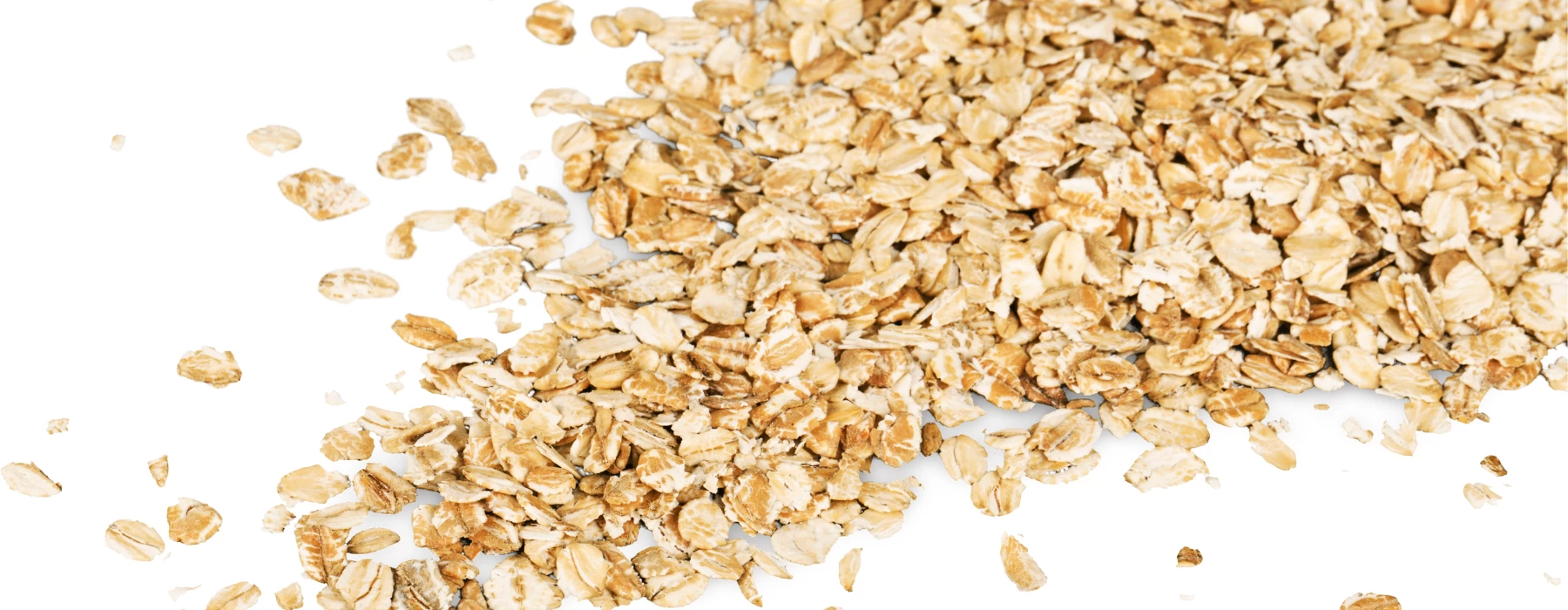
Oats are a good source of vitamins, minerals and antioxidants. Oats are also a rich source of fiber, especially beta glucan. Oats are the only source for avenanthramides, a group of antioxidants, believed to decrease the chances of heart disease. They are consumed commonly as oatmeal (porridge) or in baked goods like bread, muesli or granola. The whole grains are rolled and crushed to make oatmeal. Nutritional facts of raw oats per 100 gms:
|
Calories |
389 |
|
Carbs |
66.3 gms |
|
Sugar |
0 |
|
Fiber |
10.6 gms |
|
Protein |
16.9 gms |
|
Fat |
6.9 gms |
|
Water |
8% |
Carbohydrates found in oats are 11% fiber and 85% starch. Fiber found is mainly beta glucan. There are three types of starch found in oats: Rapidly digested starch (7%), Slowly digested starch (22%), and resistant starch (25%).
The protein content of oats is higher than most of the other grains. The major protein found in oats is avenalin, found only in oats but similar to proteins found in legumes. The minor protein is avenin, related to wheat gluten. However, oats in its pure form is considered safe for most of the people with glucose intolerance.
Oats is a rich source of many vitamins and minerals like: manganese, phosphorus, copper, vitamin B1, iron, selenium, magnesium, and zinc.
Oats also contain antioxidants like avenanthramides, ferulic acid, and phytic acids.
Various studies have reported that oats can lower cholesterol levels, which inturn reduces the risk of heart disease. Beta glucan present in oats binds with cholesterol rich bile acids and removes it out of the body. Bile acids are normally reabsorbed in the digestive system, but beta glucan inhibits the reabsorption, leading to reduced cholesterol levels.
Oats also reduce the risk of type2 diabetes. Many studies have reported that beta glucan may improve the insulin sensitivity, hence delaying or preventing the onset of type2 diabetes.
Water soluble fibers present in oats increases the fullness by delayed stomach emptying and release of fullness hormones. Fullness is directly associated with decreased chances of obesity and type2 diabetes. In addition oats are low in calories, high in fiber and high in many essential minerals and vitamins. These qualities make oats a smart choice for weight loss.
Oats in its pure form normally are harmless for people with celiac disease and other wheat intolerances. Normally oats are well tolerated by everyone, but if contaminated with gluten, may pose a problem for people with celiac disease.